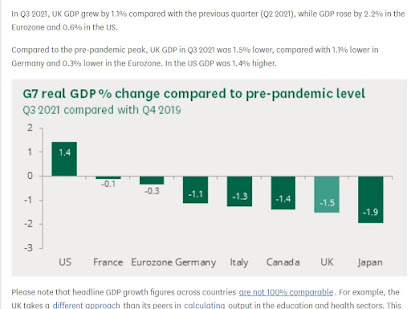Bexit threatens the peace in Northern Ireland
The GFA provides that decisions affecting North-South relations in Ireland are to be by agreement and with due consideration for EU rules. The agreement also provides that there should be no change in the status of NI without majority consent. Britain breached the GFA by issuing the Article 50 letter in March 2017, without consent by all the affected parties and in defiance of 56% of the Northern Ireland electorate who voted to remain in the EU. Brexit ministers argue that Britain can do as it pleases and anyway technology will allow for a frictionless border. The arrogance and dishonesty of this position, in breach of an international treaty, belies any intention for peaceful, democratic co-operation.
Border installations of any kind would be visible reminders of partition which the majority in Ireland never wanted, and which caused so much conflict. Surveillance masts would be as much a target as security towers were, during the guerrilla war. Number plate recognition systems exist but they cannot identify the driver or passengers, their residency status or what goods are being carried. A new regime of border controls would be inevitable with profound effects, imposing barriers to free movement of people, disrupting trade and daily life and reopening the long-disputed status of Northern Ireland.
Taking Northern Ireland out of the EU, the customs union and single market, without agreement by all parties in NI and the Irish government, would be a catastrophic breach of the Good Friday Agreement. If the Tory government carries out its threat to reject the Agreement then the revision of the Irish constitution, validated by the 1998 referendum, must be re-opened for debate. This could have very serious implications for the peace. Constitutional republicans would be pushed towards an unlikely alliance with militants who claim there is no point in negotiating with Britain. This is a truly horrific prospect which should shock any reasonable person to their senses. Regrettably sense and reason are in short supply in the chaos of Tory Brexit. Language and evidence are debased and expertise is ridiculed by Tory ministers. Contradictory, nonsensical propositions are upheld by senior Tories in defiance of rational analysis.
The most benign conclusion is that a referendum in NI on reunification with Ireland must be held, soon. This is unlikely to be a smooth and calm process but there is a more alarming, alternative, conclusion. Many republicans argued, in 1998, that Britain has a long history of dishonourable behaviour in Ireland and could not be trusted to act honestly or impartially. I was one of those who argued against that view but I must now reconsider. There was no British opt-out from the constitutional arrangements approved in 1998 but Brexit Britain doesn’t care about international agreements or constitutional settlements. Ireland made substantial concessions on sovereignty as part of the Good Friday Agreement but Brexit Britain now intends to dishonour its side of the deal and “take back control of its borders”, in Ireland as well as Britain, regardless of the consequences.
This leads to the unavoidable conclusion, long argued by extreme republicans, that the political process leads nowhere and the status of Northern Ireland must ultimately be settled by force. If history is any guide it’s fair to assume there are already people making plans for the resumption of war. The Chief Constable of police in NI has already affirmed his view that this danger is real and active.
Assuming, optimistically, that renewed war can be avoided, the constitutional status of Northern Ireland must be reopened for negotiation between republicans and unionists and the British and Irish governments. This would be a time-consuming, difficult and expensive process. The Tory government carries a heavy burden of guilt for re-opening old wounds and imposing costly risks and disruption on Ireland. Tory politicians should refrain from lecturing other states about international law or a rules-based system. Brexit Britain stands alongside Zimbabwe and Venezuela in global credibility, reliability and adherence to the rule of law.
There is still time for the Tory government to change course and unambiguously reaffirm its commitment to the Good Friday Agreement. The signs are not hopeful. The collapse of the NI executive, the chaotic Brexit process and Tory ministers’ doublespeak are valid causes for alarm. M Barnier has said he hears the sound of the clock ticking. We do not yet know if it is the countdown to a reconsideration of the broken treaty or the timing mechanism for a truly horrible explosion.


Comments
Post a Comment